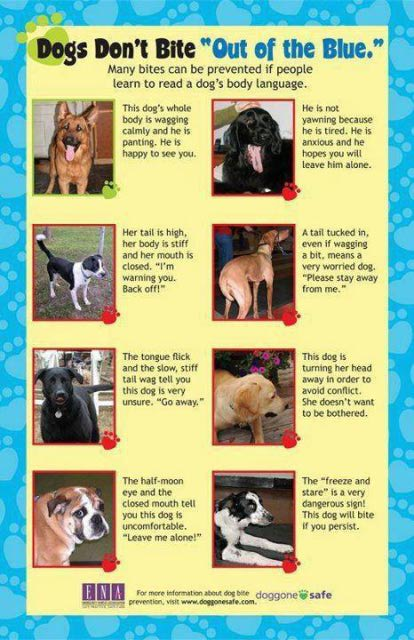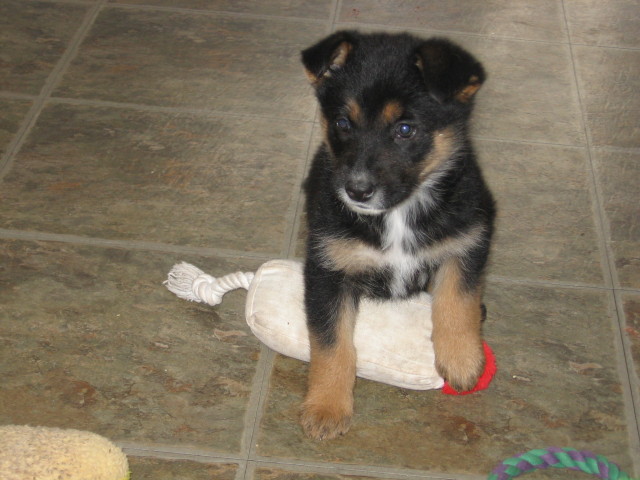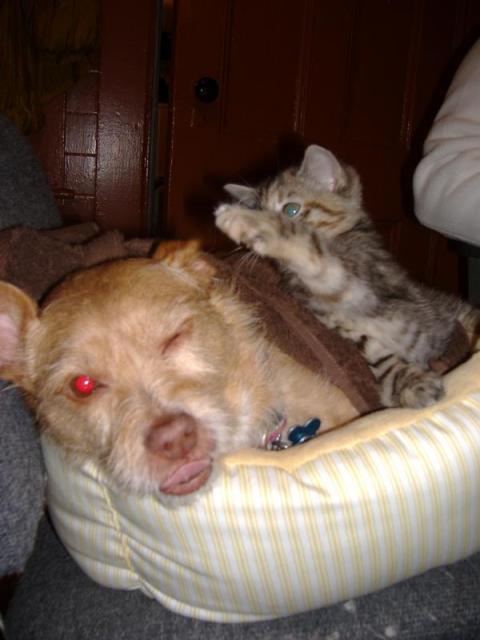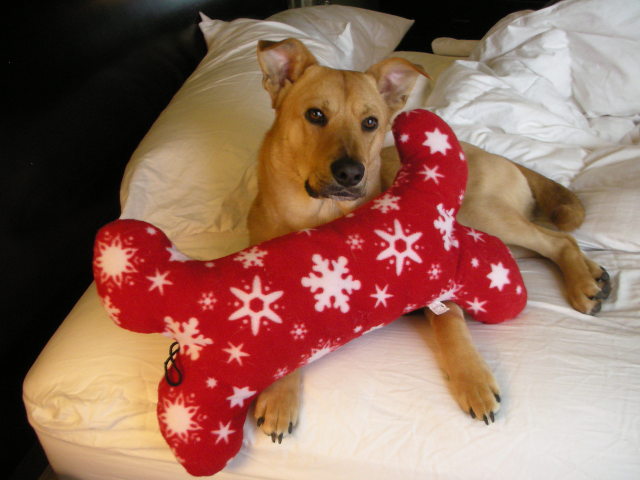QuestionI have a 4 1/2 year old male Border Collie who has demonstrated fear aggression over the past few years at certain times,i.e, the vet,large dogs(was attacked by a large dog at 6 mo's old). Over the last 9 months, I have seen this aggression increase. I t is increasing as a protectiveness of my 10 year old daughter. Anytime she has more than 1-2 friends over, the dog becomes very heightened in his awareness of where she is. He has snapped at a 2 kids at 2 separate incidents. The other night when my daughter had several friends over and the friends were surrounding her, the dog growled. I am not sure how to correct this behavior. We are now afraid to have friends over due to the fear of what the dog may do. The vet has put him on 20 mg of prozac,(been on 4 months) which takes some of the edge off of him, but no cure. HELP!!
AnswerFor now, can you crate your dog, or separate him from them, when there are children visiting? I would not "correct" a growl (and would not use any physical or stern correction with this dog), as you *want* the dog to be able to warn you that he is uncomfortable. If he cannot warn, his only choice, as a dog, is to escalate to a snap or a nip. Often, herding dogs that are not well socialized, meticulously trained, and well exercised (physically AND mentally - Border Collies NEED a job) default to what we call "displaced" herding behaviors, so one or all of those may be contributing factors here as well. Aggression that escalates may be due to fear, but it can also be due to medical issues. If this were my dog, and it hasn't been done already, I would have a complete thyroid panel done (ask your vet to send the sample to Hemopet - you can check their web site for info). Hypothyroidism can cause aggressive behavior - if your dog does have that, a vet who is familiar with treating hypothyroid dogs needs to re-examine which psychopharmacological agents to use, since the dog would also have to be put on thyroxine (drug interactions possible).
Dogs can also act this way if they view a certain person as theirs. They are not "protecting" the person from harm, they are guarding the person as if he/she was a possession, or resource. Good book on the subject is "Mine! A Practical Guide to Resource Guarding in Dogs" by Jean Donaldson. Most dogs guard food, but some guard people, toys, or even tissue paper!
If you have only been to your regular vet over this issue, it might be helpful to call in a behaviorist. (IAABC has a listing)

 uncontrollable beagle
Question
max
My beagle is a year and a half. Ive had hi
uncontrollable beagle
Question
max
My beagle is a year and a half. Ive had hi
 Is this aggression, dominance, or play?
QuestionQUESTION: I have a question regarding doggy beh
Is this aggression, dominance, or play?
QuestionQUESTION: I have a question regarding doggy beh
 puppy problems
QuestionQUESTION: I am the proud owner of 2 german shep
puppy problems
QuestionQUESTION: I am the proud owner of 2 german shep
 My dog is shaking and hiding under my bed recently
QuestionRorrie and Pencil
QUESTION: My dog, Rorr
My dog is shaking and hiding under my bed recently
QuestionRorrie and Pencil
QUESTION: My dog, Rorr
 Very Scared Dog
Question
Happy
My dog is 17 months old and is a mixed b
Very Scared Dog
Question
Happy
My dog is 17 months old and is a mixed b